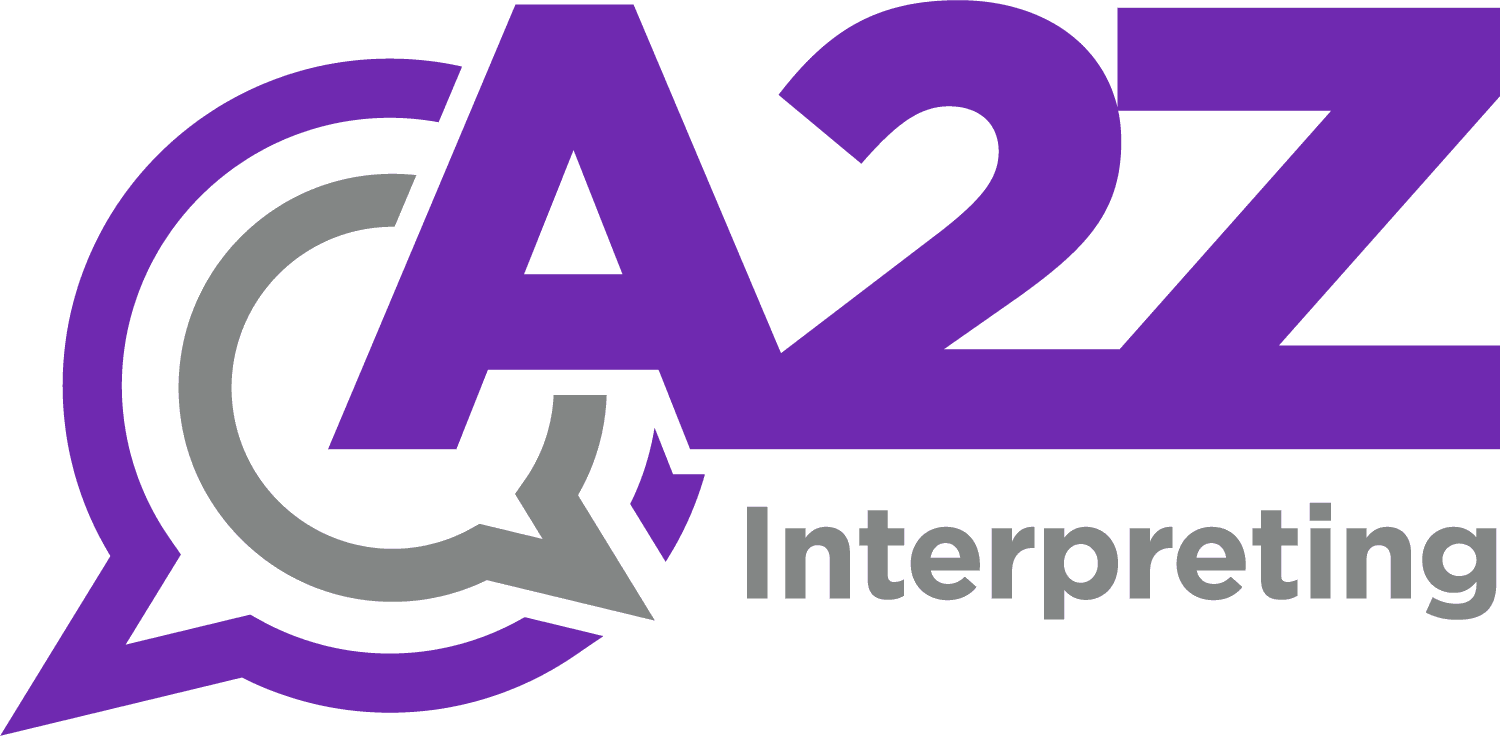At A2Z Interpreting, we believe that communication is a human right. In every setting—whether it’s a medical appointment, classroom, workplace, or community event—everyone deserves to be understood. But too often, Deaf, Hard of Hearing, and DeafBlind individuals face barriers when accessing the services and spaces they need. American Sign Language (ASL) interpreting can bridge those gaps and create inclusive, accessible environments for everyone.
As we celebrate the launch of our new brand, we want to take a moment to dive into the importance of ASL interpreting services, the impact they have, and how we at A2Z Interpreting can help organizations, businesses, and individuals create a more inclusive world.
What is ASL Interpreting?
ASL interpreting is the process of translating spoken language into American Sign Language, a visual language with its own grammar and syntax. Certified ASL interpreters facilitate communication between Deaf, Hard of Hearing, or DeafBlind individuals and those who do not understand ASL.
Interpreters are trained professionals who use their skills to ensure that communication is clear, accurate, and respectful. They work in a variety of settings, from medical appointments to workplace meetings, educational environments, and community events.
Why is ASL Interpreting Essential for Accessibility?
Accessibility goes beyond just physical access—it also includes access to communication. Without qualified ASL interpreters, Deaf individuals often face barriers to critical information and services. This can lead to miscommunication, frustration, and even discrimination.
The Americans with Disabilities Act (ADA) ensures that individuals with disabilities, including those who are Deaf or Hard of Hearing, have the right to equal access to services, education, and public spaces. This includes providing appropriate accommodations like ASL interpreters for appointments, meetings, and events.
Some Key Areas Where ASL Interpreting is Crucial:
1. Healthcare:
Access to medical services should never be limited by communication barriers. ASL interpreters are critical in ensuring that Deaf patients receive proper care, understand medical instructions, and can communicate effectively with doctors, nurses, and specialists.
Without qualified interpreters, medical appointments become stressful and unsafe for Deaf patients, leading to missed diagnoses, incorrect treatments, and frustration for both patients and healthcare providers.
2. Education:
In educational settings, ASL interpreters help Deaf students fully participate in classrooms, lectures, and school activities. Whether it’s a K-12 school or a university, interpreters ensure that Deaf students can learn, ask questions, and engage in discussions, just like their hearing peers.
Interpreting in education also extends to parent-teacher conferences, IEP meetings, and specialized support for students requiring additional assistance.
3. Workplace & Employment:
Employers have a legal responsibility to provide accommodations for Deaf employees, and ASL interpreters play a major role in ensuring workplace inclusivity. Interpreters are needed for job interviews, employee meetings, and training so Deaf employees can fully participate in the workplace and contribute their skills.
A truly inclusive workplace is one where every individual, regardless of hearing ability, has equal access to communication and the opportunity to succeed.
4. Community Events & Conferences:
ASL interpreters are also crucial in public spaces like conferences, workshops, and community events. From panel discussions to theater performances, town halls, and religious services, interpreters ensure that Deaf attendees have full access to the event’s content and can actively engage.
By having ASL interpreters at events, organizations send a strong message that accessibility and inclusion are a priority, fostering a welcoming environment for all participants.
How A2Z Interpreting Supports Accessibility
At A2Z Interpreting, we are committed to making communication accessible for everyone. We provide high-quality, curated ASL interpreting services tailored to the needs of each client and setting. Whether you’re a medical provider, educator, event organizer, or business, we work with you to ensure that you have the right interpreter for your specific needs.
Here’s how we do it:
- Curated Interpreter Matches: We ensure that every interpreting request is met with the right interpreter for the specific context, whether it’s healthcare, legal, education, or an event.
- Personalized Service: We take the time to understand the unique needs of our clients and the Deaf community we serve, ensuring that every interaction is respectful and clear.
- Advocacy for Fair Pay: We advocate for fair compensation for interpreters, ensuring that our team is valued and supported as they do this vital work.
- Commitment to Excellence: We uphold the highest standards of interpreting, working with certified, experienced interpreters who are trained to provide the best quality service.
What You Can Do to Make Your Organization More Accessible
If you’re interested in making your business, school, healthcare practice, or event more inclusive, here are a few steps you can take:
- Understand the Legal Requirements: Ensure your organization is compliant with ADA regulations and providing equal access to all individuals, including those who are Deaf or Hard of Hearing.
- Provide Regular ASL Interpreting: For meetings, events, and appointments, make sure to provide qualified interpreters for all relevant interactions.
- Advocate for Inclusion: Encourage a culture of inclusivity in your organization, not only by hiring interpreters but also by promoting awareness and understanding of Deaf culture and communication.
Get in Touch with A2Z Interpreting Today
If you want to learn more about how A2Z can help your organization improve accessibility, or if you need an ASL interpreter for your next event or meeting, don’t hesitate to reach out to us. We’re here to help you make your spaces more inclusive, accessible, and equitable for everyone.
